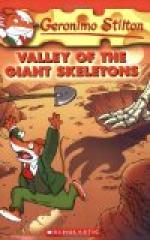“Please run for’d and help my father with the bow-lines. You’re worth three foremast hands. Indeed, I didn’t expect to see a sailor on this dock.”
“I had to come around the Horn to get here, Miss,” he explained, “and when a man hasn’t money to pay for his passage, he needs must work it.”
“I’m the second mate,” she explained. “We had a succession of gales from the Falklands to the Evangelistas, and there the mate got her in irons and she took three big ones over the taffrail and cost us eight men. Working short-handed, we couldn’t get any canvas on her to speak of—long voyage, you know, and the rest of the crew got scurvy.”
“You’re a brave girl,” he told her.
“And you’re a first-class A. B.,” she replied. “If you’re looking for a berth, my father will be glad to ship you.”
“Sorry, but I can’t go,” he called as he turned toward the companion ladder. “I’m Cardigan, and I own this sawmill and must stay here and look after it.”
There was a light, exultant feeling in his middle-aged heart as he scampered along the deck. The girl had wonderful dark auburn hair and brown eyes, with a milk-white skin that sun and wind had sought in vain to blemish. And for all her girlhood she was a woman—bred from a race (his own people) to whom danger and despair merely furnished a tonic for their courage. What a mate for a man! And she had looked at him pridefully.
They were married before the ship was loaded, and on a knoll of the logged-over lands back of the town and commanding a view of the bay, with the dark-forested hills in back and the little second-growth redwoods flourishing in the front yard, he built her the finest home in Sequoia. He had reserved this building-site in a vague hope that some day he might utilize it for this very purpose, and here he spent with her three wonderfully happy years. Here his son Bryce was born, and here, two days later, the new-made mother made the supreme sacrifice of maternity.
For half a day following the destruction of his Eden John Cardigan sat dumbly beside his wife, his great, hard hand caressing the auburn head whose every thought for three years had been his happiness and comfort. Then the doctor came to him and mentioned the matter of funeral arrangements.
Cardigan looked up at him blankly. “Funeral arrangements?” he murmured. “Funeral arrangements?” He passed his gnarled hand over his leonine head. “Ah, yes, I suppose so. I shall attend to it.”
He rose and left the house, walking with bowed head out of Sequoia, up the abandoned and decaying skid-road through the second-growth redwoods to the dark green blur that marked the old timber. It was May, and Nature was renewing herself, for spring comes late in Humboldt County. From an alder thicket a pompous cock grouse boomed intermittently; the valley quail, in pairs, were busy about their household affairs; from a clump of manzanita a buck watched John Cardigan




